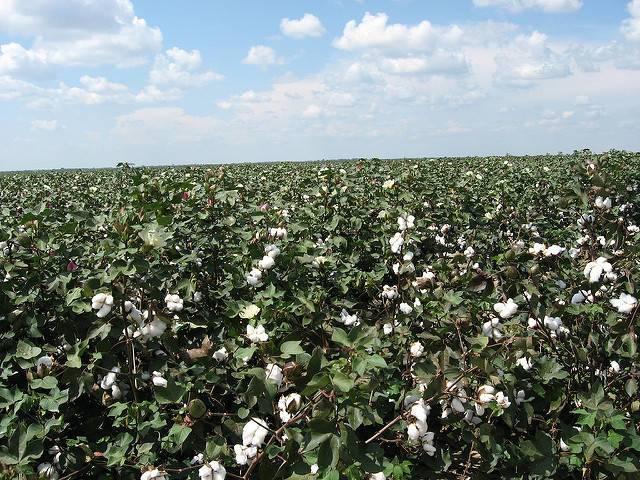
We hear about conflict palm oil and conflict minerals often, but what about conflict cotton?
The world’s most popular textile fiber has been linked to slavery in Uzbekistan and thousands of farmers committing suicide in India. Indeed, programs such as the Better Cotton Initiative and Cotton Connect are doing remarkable work to alleviate cotton’s impact on human rights and the environment. And to their credit, more apparel companies -- from Adidas to C&A -- are incorporating more sustainable sources of cotton into their clothing lines. One company, however, wants to go even further in guaranteeing that its cotton comes from a reliable and responsible source.
PimaCott, owned by a large Indian supplier, says it has a solution. The company partnered with Applied DNA Sciences, an American biotechnology firm, to treat its cotton so that it can be easily scanned and identified. Molecules with DNA tags are added to cotton during the ginning process, so someone on a company’s supply chain team is able to track the authenticity of the cotton from the field to the store.
Applied DNA Sciences says its technology also allows for “fiber typing." This allows supply chain stakeholders to authenticate a bolt of textiles or a garment as a genuine varietal of cotton – which, in PimaCott’s case, is pima: the high-end cotton grown in California’s San Joaquin Valley. (Hence the company's name.)
From a business perspective, this is critical for the Central Valley’s pima cotton farmers, who are subjected to far stricter environmental and labor standards in the Golden State than other countries, or even other U.S. states.
The problem is that consumers who seek textiles made from coveted Californian or Egyptian cotton can be misled by wayward suppliers. Last fall, Walmart and Target were nailed by lawsuits alleging the retailers mislead consumers about a line of “100 percent” Egyptian cotton sheets, made in India.
Walmart in turn offered customer refunds, but the episode raised questions about the authenticity of high-quality products in other stores. And of course, conscious consumers were left wondering if that ethical set of sheets or shirt had fibers that traveled from cotton suppliers with dubious labor or environmental practices. Other controversies, such as the tensions between Monsanto and India that eventually prodded the biotech firm to pull its latest GMO cotton seeds out of the Indian market last summer, raised further questions about the veracity of any company’s claims about their products.
This technology shows promise, and could eventually help other organizations that are trying to scale fair trade or responsibly-sourced cotton. But it will take a while for DNA tagging to score widespread acceptance.
As Fast Company reported, these tagged molecules need to be added to cotton at its point of origin. From the point of view of farmers, many of whom face thin margins and other risks such as bad weather or global slumps in commodity prices, DNA tagging could come across as yet another expense.
But PimaCott says it is helping cotton growers with the upfront costs. And if farmers see the value in having their crops verified and prevented from becoming blended with lower-grade cotton, we could see an industry transformed -- and down the road, witness improved traceability in other agricultural supply chains as well.
Image credit: Ken Lund/Flickr

Leon Kaye has written for 3p since 2010 and become executive editor in 2018. His previous work includes writing for the Guardian as well as other online and print publications. In addition, he's worked in sales executive roles within technology and financial research companies, as well as for a public relations firm, for which he consulted with one of the globe’s leading sustainability initiatives. Currently living in Central California, he’s traveled to 70-plus countries and has lived and worked in South Korea, the United Arab Emirates and Uruguay.
Leon’s an alum of Fresno State, the University of Maryland, Baltimore County and the University of Southern California's Marshall Business School. He enjoys traveling abroad as well as exploring California’s Central Coast and the Sierra Nevadas.














